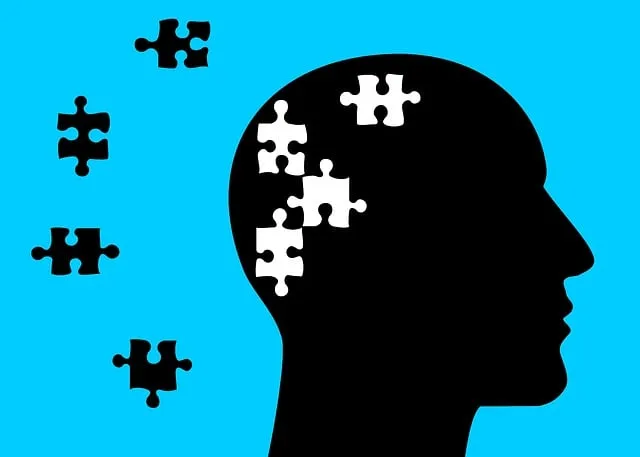The Centennial Kaiser Permanente mental health appointment center is a vital hub for crisis support, employing evidence-based strategies like active listening and empathetic communication to address acute mental health issues. By integrating Mental Health Policy Analysis, Burnout Prevention, and Education programs, they empower individuals with coping mechanisms for long-term resilience and self-care routines. The center also fosters emotional healing and destigmatizes mental health conversations, offering a safe space for open dialogue. Through comprehensive post-crisis support, including self-awareness exercises, coping skills development, and social skills training, Centennial Kaiser Permanente promotes adaptive responses and faster recovery, ultimately improving mental well-being.
“In times of crisis, effective intervention can make a profound difference. This article explores essential strategies for navigating acute mental health challenges, with a special focus on the role of established centers like the Centennial Kaiser Permanente Mental Health Appointment Center. We’ll delve into understanding crisis intervention, its key components, and post-crisis support. By examining evidence-based practices, we aim to equip readers with tools to recognize and address crises, ultimately fostering better mental health outcomes.”
- Understanding Crisis Intervention: A Brief Overview
- The Role of the Centennial Kaiser Permanente Mental Health Appointment Center
- Key Strategies for Effective Crisis Intervention
- Post-Crisis Support and Recovery Planning
Understanding Crisis Intervention: A Brief Overview

Crisis intervention strategies play a pivotal role in addressing acute mental health crises, such as suicidal ideation, severe depression, or traumatic events. At the Centennial Kaiser Permanente mental health appointment center, professionals are equipped to provide immediate and effective support. Understanding crisis intervention involves recognizing the unique dynamics of each situation while focusing on safety, stability, and connection.
Effective crisis intervention strategies often include active listening, empathetic communication, and a range of evidence-based techniques tailored to the individual’s needs. Mental Health Policy Analysis and Advocacy, Burnout Prevention, and Mental Health Education Programs Design are crucial components that contribute to a comprehensive approach. By integrating these strategies, healthcare providers at Centennial Kaiser Permanente strive to not only alleviate immediate distress but also empower individuals with coping mechanisms for long-term resilience.
The Role of the Centennial Kaiser Permanente Mental Health Appointment Center

The Centennial Kaiser Permanente Mental Health Appointment Center plays a pivotal role in crisis intervention by providing specialized support and resources to individuals experiencing acute mental health challenges. This center is designed to offer immediate assistance, ensuring that those in need receive prompt access to expert care. Trained professionals at the appointment center are equipped to handle various crises, from emotional distress to suicidal ideation, using evidence-based practices tailored to each individual’s unique situation.
By facilitating the emotional healing processes, the center promotes self-care routine development for better mental health. It encourages individuals to develop coping strategies that empower them to manage future crises independently. Moreover, the center contributes to the broader goal of Mental Health Awareness by destigmatizing conversations around mental illness and providing a safe space for open dialogue.
Key Strategies for Effective Crisis Intervention

In the event of a crisis, effective intervention strategies are vital for addressing and de-escalating high-stress situations. The Centennial Kaiser Permanente mental health appointment center has identified several key approaches that prove beneficial in such scenarios. One of the primary methods is Self-Awareness Exercises, encouraging individuals to recognize their emotions and triggers. By fostering self-awareness, people can better manage their responses during a crisis. This includes practicing mindfulness techniques to stay grounded and calm.
Additionally, Coping Skills Development plays a crucial role in crisis intervention. Teaching practical coping strategies empowers individuals to handle stressful situations adaptively. This might involve learning relaxation techniques, problem-solving skills, or effective communication methods. The center also emphasizes Social Skills Training, as social support and positive relationships are essential for recovery and resilience. These strategies collectively contribute to the overall effectiveness of crisis intervention services at Centennial Kaiser Permanente.
Post-Crisis Support and Recovery Planning

After a crisis event, providing effective post-crisis support and facilitating recovery planning is paramount to helping individuals regain their sense of stability and well-being. The Centennial Kaiser Permanente mental health appointment center emphasizes the importance of comprehensive care in such situations. This includes not only addressing the immediate needs of those affected but also equipping them with long-term coping strategies and resilience-building techniques.
Mental Health Awareness and Education Programs Design play a crucial role in this process, as they enable individuals to better understand their experiences and equip them with the knowledge to recognize potential triggers or warning signs early on. Communication Strategies are also vital; fostering open and honest dialogue allows for the sharing of experiences, promotes emotional processing, and facilitates connections within communities, ultimately contributing to faster recovery and enhanced mental health outcomes.
In conclusion, effective crisis intervention strategies, as guided by the exceptional services provided by the Centennial Kaiser Permanente Mental Health Appointment Center, play a pivotal role in supporting individuals during times of distress. By combining prompt assessment, compassionate care, and evidence-based practices, such as those outlined in this article, we can enhance our ability to help people navigate crises and facilitate their path towards recovery. The comprehensive approach, including post-crisis support and recovery planning, ensures that individuals not only survive but thrive after a crisis, fostering resilience and promoting long-term mental well-being.





